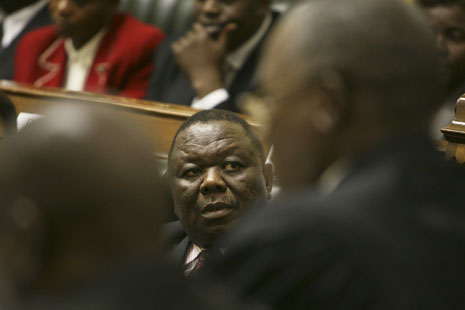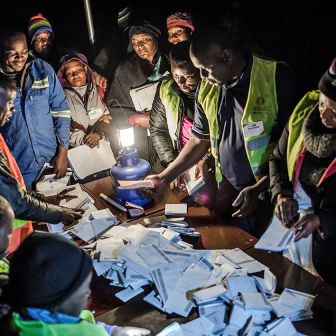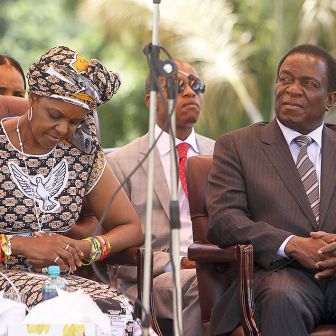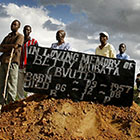THE MORNING was bright, the sun almost tangible when they announced on the news that the political protagonists in my country had come to an agreement. But political news and matters of the state have ceased to be of any use to my daily existence, and I knew that whether the political deal worked or not, the politicians had nothing to lose. Of course, they have access to either loot the national resources or they get well-funded from unknown overseas sources.
In fact, all I was thinking about then was the paltry five American dollars in my pocket. I had no friend that I could call up for assistance because many of my friends have fled the country over the past ten years. I am sure that for most people in Harare that day, the hunt for American dollars was the single most important thing on their minds.
When I asked a friend who has been a political activist for many years what he thought of the deal he told me that it was like putting a hyena and a goat in a cage, hoping that they could live together in peace and produce something. The truth is something will be eaten alive, he added.
In Zimbabwe, hope is something that we have come to know so intimately because every day in the past decade of our crisis we have looked forward to a time when things will get better. But as the years have worn on, and the crisis grown, the thoughts of despair come tugging on the sleeve of the mind in their thousands.
Yet, surprisingly, there was some movement within the political circles. And finally, the state-owned media reported that opposition leader Morgan Tsvangirai would be sworn in as the prime minister of the country. I was shocked but now a tinge of real hope showed in the horizon of my thoughts.
But, to be honest, I did not really (and still do not) believe in the authenticity of the political deal. The problem is that the parties involved in the deal have differing political ideologies. They look at the world through completely different lenses, and it’s hard to see how they will be able to govern the country solely on the basis of compromise. In addition, there is a deep lack of trust between Mugabe and Tsvangirai.
And it is sad that once again ordinary Zimbabweans have been reduced to mere spectators rather than participants at the political stage. I feel that my voice does not count for anything. Political power in my country no longer has anything to do with the will of the people.
Because I have been disappointed in the past, this time, I choose not to celebrate. In my opinion, it will take the government of national unity in Zimbabwe no less than two years to show any speck of results, and given the lack of trust and shared values among the political protagonists, the road ahead is clearly going to be bumpy. What is saddening is that both Mugabe and Tsvangirai have political turf to protect, and they will be keen to be seen to make decisions that ensure their own political survival at the expense of the public good for the long-suffering people of Zimbabwe.
At the back of my mind, I feel strongly that the politicians in Zimbabwe have once again managed to shortchange the people. I cannot simply absolve myself of the thought that when the political protagonists in Zimbabwe were tired of wining and dining over negotiations in five-star hotels they eventually decided to give us half-baked crumbs that fell of their tables.
And when the new government announced that civil servants were going to be paid in American dollars, it did not come as a surprise to many people. With everything being costed in American dollars, it was long overdue. Many civil servants were already opting out of work, particularly teachers who have just ended a year-long strike. Everyone acknowledges that paying civil servants in American dollars will help these government workers to cope with the harsh socio-economic circumstances. Whether it is sustainable is another question altogether in a country that needs approximately five American billion dollars to put together its broken pieces.
But the fact of the matter is that the American dollar is still so much of a hassle for the majority of the people. There are too many fake American bills in circulation and one can never tell if a bill is genuine or not because it’s not our money.
Once again, we look to God to give us the best. And as usual, Zimbabweans are now accustomed to hoping against hope as they go about their daily business to scrape out a living. •




